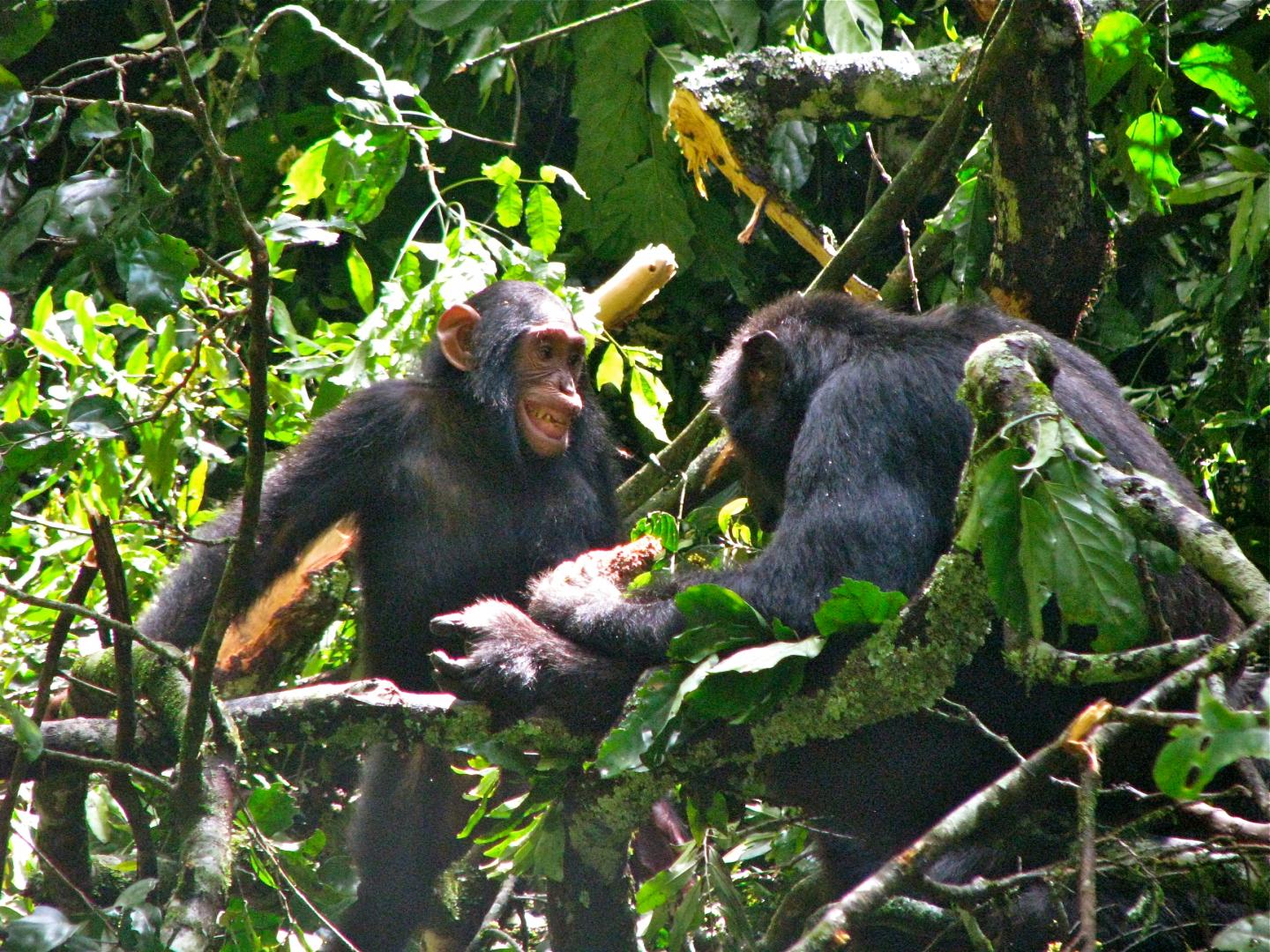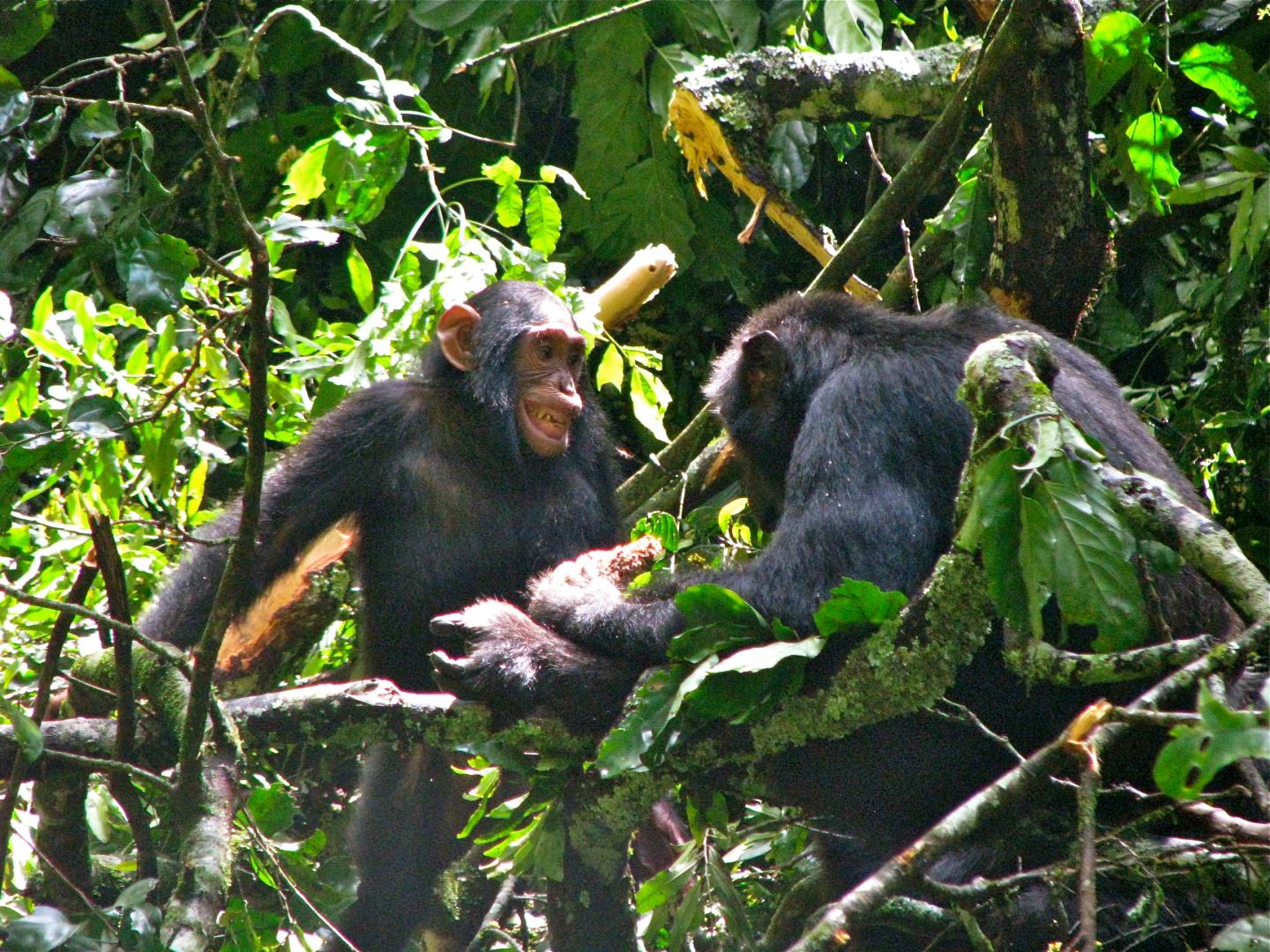
Credit: Iulia Badescu
TORONTO, ON – A babysitter can make a big difference in a parent's life. For wild chimps in Uganda, it may even mean that mothers can wean their infants faster, which can allow them to reproduce again more quickly.
A University of Toronto study looked at 42 pairs of chimpanzee mothers and infants at Ngogo, Kibale National Park, Uganda. They wanted to better understand the impact of "alloparenting" – or babysitting – when individuals other than the mother assisted with infant care.
In a paper published in the Royal Society Open Science (RSOS), they describe looking at two particular aspects of care that these other individuals provided: infant handling, that is carrying and holding the infants, and natal attraction, the interest in infants demonstrated through behaviours like grooming and playing.
The researchers compared whether the extent of involvement of these individuals impacted the proportion of time that mothers spent foraging, the rates that infants nursed, and the contribution of milk to infants' diets.
"Infants who were held and carried more by babysitters, nursed less often and drank less milk," said Iulia Badescu, a PhD candidate in Evolutionary Anthropology at the University of Toronto, and lead author of the study. "This means that they were becoming more nutritionally independent compared to infants of the same age who were babysat less or not at all. They were going through the weaning process quicker, and would likely be done weaning at a younger age."
Babysitting may thus benefit mothers by enabling females to invest in their next offspring sooner through this accelerated weaning.
"But not all chimpanzee mothers relied on babysitters, and in fact, in other chimpanzee communities, babysitting may be a behaviour that rarely occurs. Our findings emphasize the significance of babysitting as a flexible component of female reproductive strategies in some species."
In a separate study, Badescu and her colleagues found that chimpanzee mothers let their "toddlers" nurse for comfort, even after lactation was over and they were receiving no milk.
"The young chimps were already weaned but continued to make contact with their mothers' nipple not for nutrition, but presumably for emotional purposes, when they needed to be comforted," said Badescu of the related study published in the American Journal of Physical Anthropology last month.
The researchers employed a novel method in both studies to arrive at their conclusions, analyzing fecal samples to determine what the contribution of maternal milk was to the diet of the chimpanzee infants. Until now, it has been very difficult to actually measure what animal infants eat in the wild, and Badescu and her colleagues are the first to use this non-invasive method with wild primates in large numbers.
"This novel method quantifies infant diets for us, so that we can know more precisely when weaning occurs for wild mammals, and also provides a biological way to determine if some infants are developing quicker than others" Badescu said.
###
MEDIA CONTACTS:
Iulia Badescu
Department of Anthropology
University of Toronto
[email protected]
1-647-963-1545
Sean Bettam
Communications Officer, Faculty of Arts & Science
University of Toronto
[email protected]
1-416-946-7950
Larysa Woloszansky
Media Relations Officer
University of Toronto
[email protected]
1-416-978-6974
Media Contact
Sean Bettam
[email protected]
416-946-7950
@UofTNews
http://www.utoronto.ca




